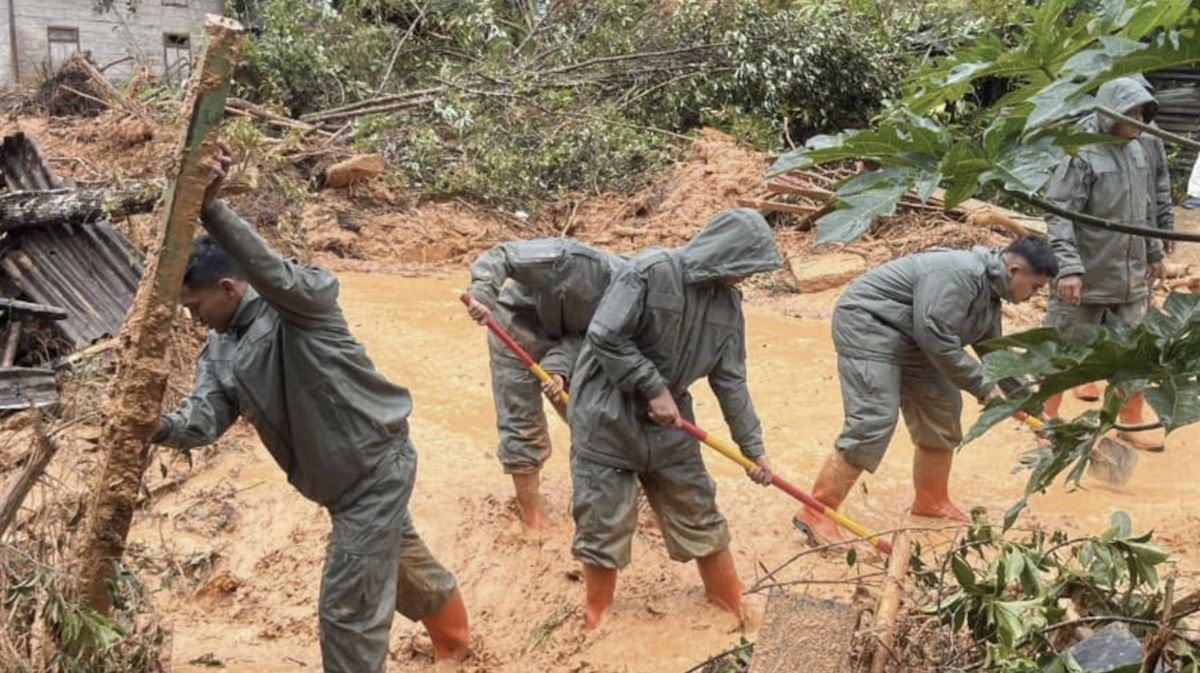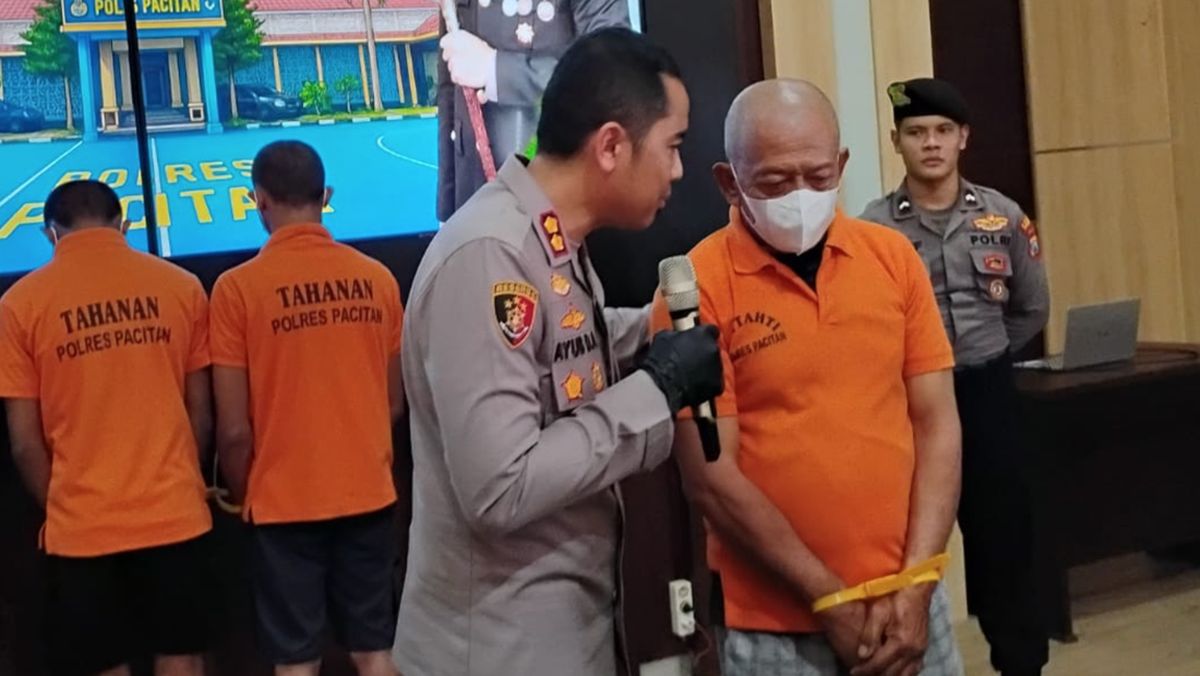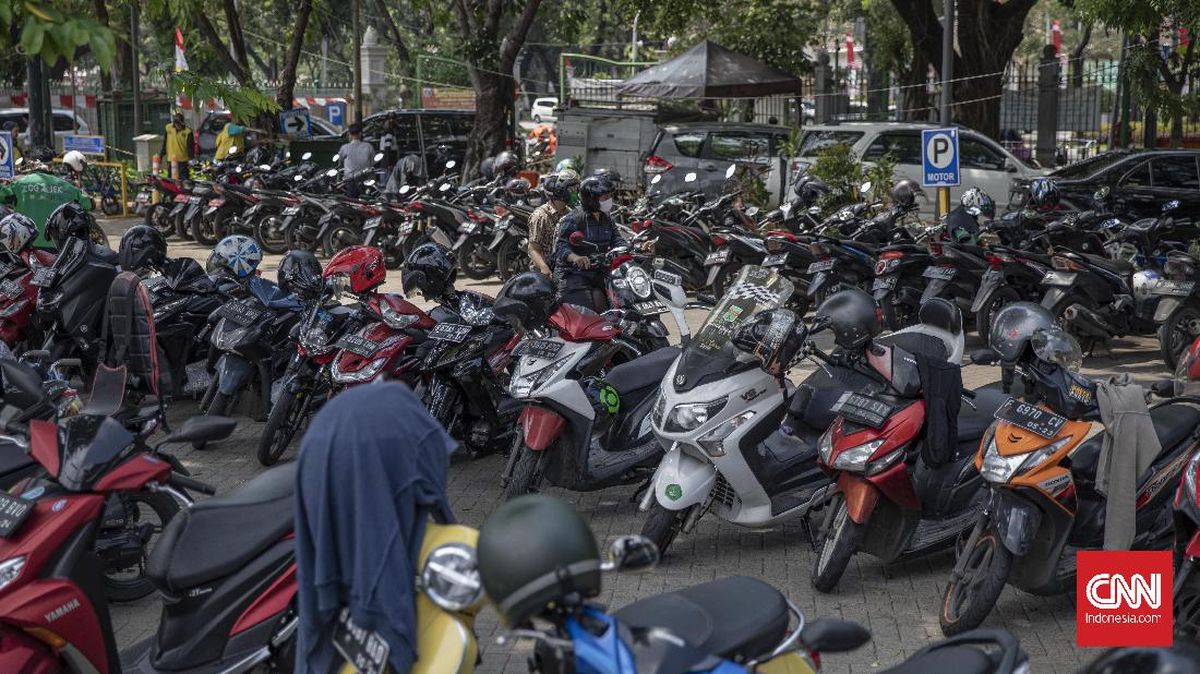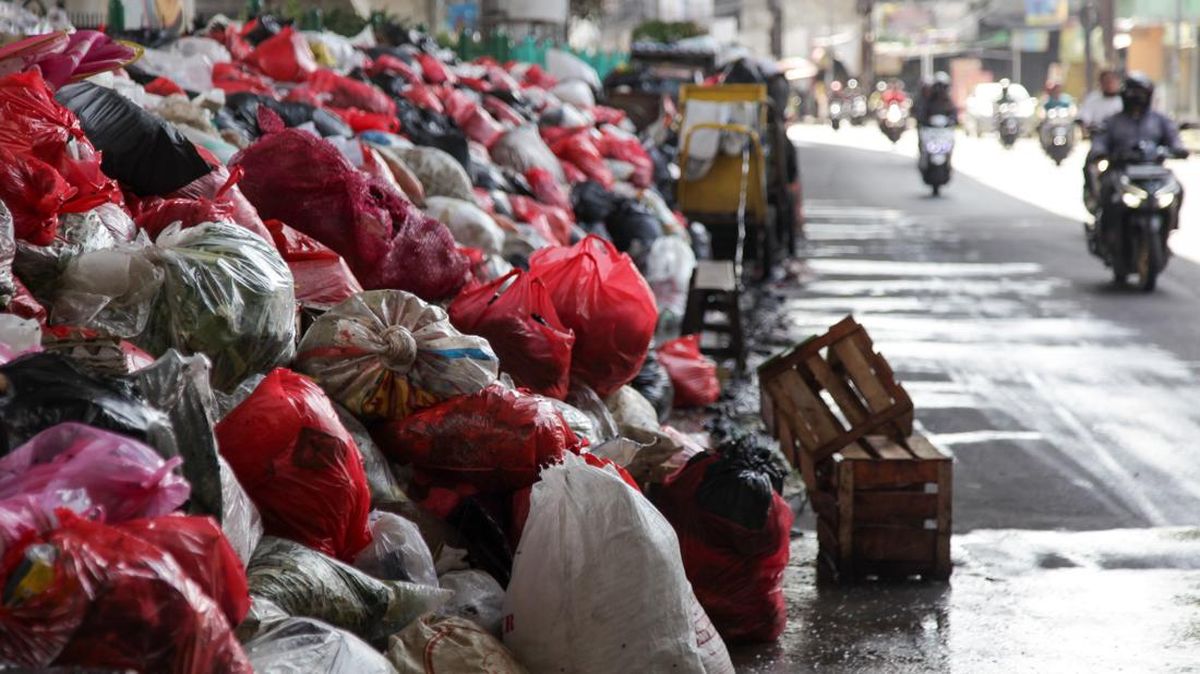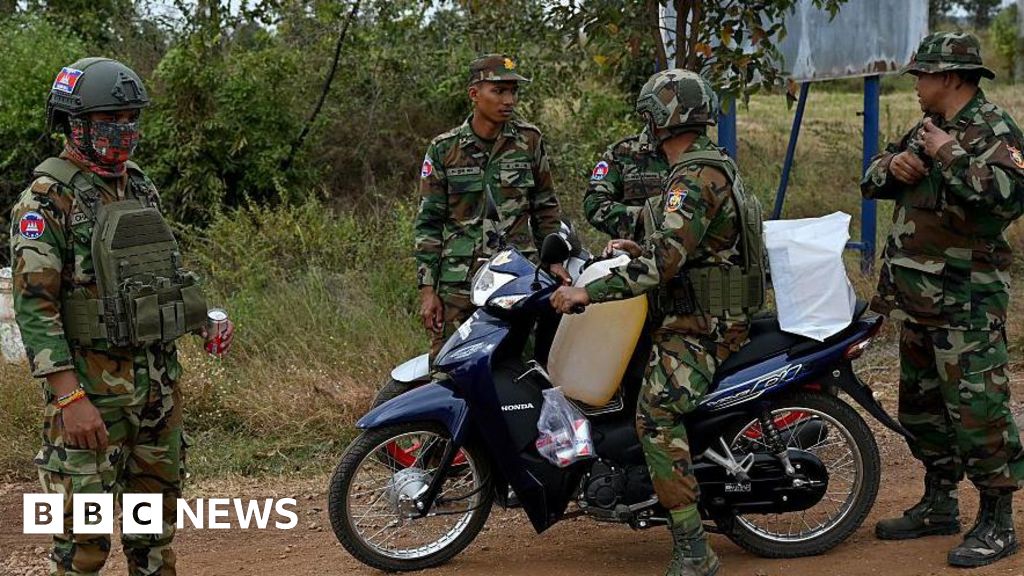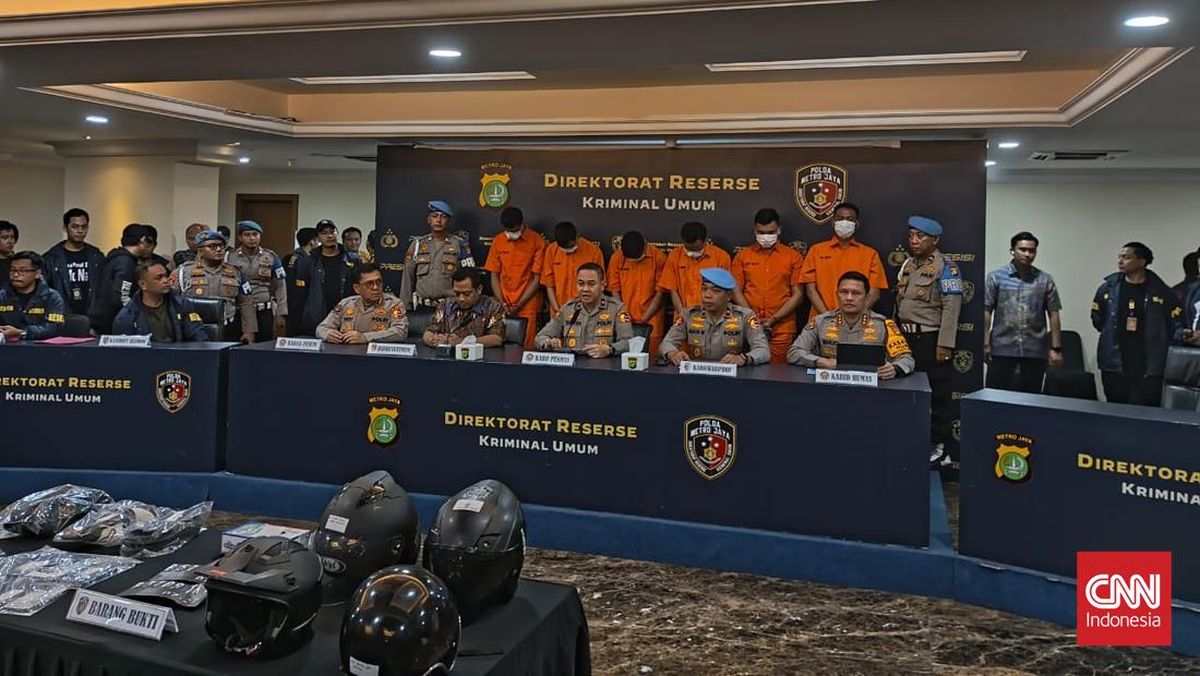Washington — A federal appeals court on Thursday continued to block President Trump's deployment of National Guard troops within the Chicago area amid ongoing immigration protests, but allowed the service members to remain under federal control.
The three-judge panel for the U.S. Court of Appeals for the 7th Circuit said in a unanimous decision that "the facts do not justify" Mr. Trump's actions in Illinois under the section of federal law known as Title 10, which the president has invoked to federalize National Guard troops to protect federal immigration personnel and government facilities in several cities.
Over the weekend, the 7th Circuit issued a preliminary order that temporarily blocked the deployment of Guard troops within Illinois, but allowed them to remain under federal control. Its decision Thursday maintains that posture, with the panel explaining its reasoning in an 18-page decision.
"At this stage, we cannot say the administration is likely to succeed in demonstrating that the President lawfully federalized the Guard under" provisions of Title 10, the 7th Circuit panel wrote. It consisted of Judges Ilana Diamond Rovner, David Hamilton and Amy St. Eve. Rovner was appointed by former President George H.W. Bush, Hamilton was tapped by former President Barack Obama and St. Eve was nominated by Mr. Trump.
Title 10 allows the president to call the National Guard into federal service when there is a "rebellion or danger of a rebellion" against the U.S. government, or if the president is "is unable with the regular forces to execute the laws of the United States."
Mr. Trump invoked his authority under Title 10 to federalize the National Guard earlier this month, claiming that federal facilities in Illinois "have come under coordinated assault by violent groups intent on obstructing federal law enforcement activities."
In response to the directive, the Department of Defense announced that roughly 200 National Guard soldiers from Texas and another 300 from Illinois had been federalized and sent to the Chicago area for at least 60 days to protect U.S. Immigration and Customs Enforcement officials and federal property. The Guard troops were sent to Illinois in response to "violent incidents, as well as the credible threats of continued violence," which the administration said were "impeding the execution of the laws of the United States," according to the Defense Department.
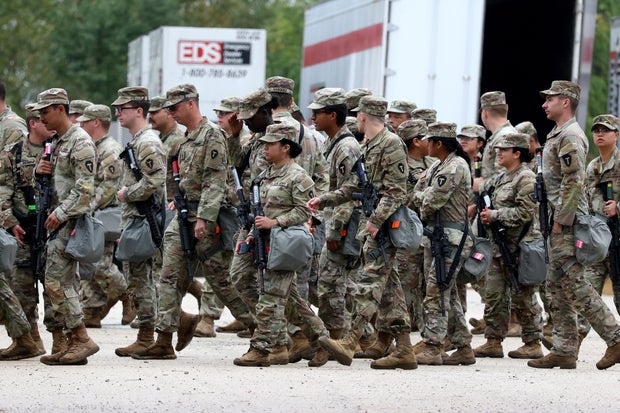 Members of the Texas National Guard assemble at the Army Reserve Training Center in Elwood, Illinois, on Tuesday, Oct. 7, 2025.
Chicago Tribune
Members of the Texas National Guard assemble at the Army Reserve Training Center in Elwood, Illinois, on Tuesday, Oct. 7, 2025.
Chicago Tribune
The move came amid confrontations outside a processing facility for detainees in Broadview, a suburb of Chicago, between protesters and law enforcement.
But the 7th Circuit judges rejected the Trump administration's determination the protests reached the level of a rebellion, and instead said there is "insufficient evidence" of one, or danger one will occur, in Illinois.
"The spirited, sustained, and occasionally violent actions of demonstrators in protest of the federal government's immigration policies and actions, without more, does not give rise to a danger of rebellion against the government's authority," they wrote.
As to whether Mr. Trump is unable to "execute the laws of the United States" with regular forces, as described in Title 10, the 7th Circuit found there is "insufficient evidence" that the demonstrations have hampered the ability of federal officers to execute immigration laws.
"Federal facilities, including the processing facility in Broadview, have remained open despite regular demonstrations against the administration's immigration policies," the judges said. "And though federal officers have encountered sporadic disruptions, they have been quickly contained by local, state, and federal authorities."
The clash over the Trump administration's efforts in Chicago came to a head earlier this month, with the state and city of Chicago filing a lawsuit that argued the directives calling the National Guard into federal service in Illinois are unlawful. But the administration has argued that courts cannot review the president's federalization of the National Guard under Title 10.
A federal district court judge initially blocked the federalization and deployment of the Guard for 14 days, finding that the Department of Homeland Security's assessment of the events in Chicago to be "unreliable." The Trump administration appealed that decision to the 7th Circuit.





